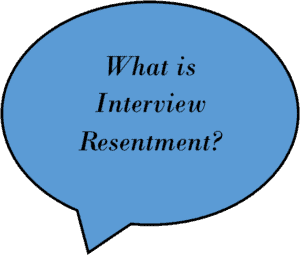INTERVIEW RESENTMENT
Are lengthy and overcomplicated interview processes causing “interview resentment” and costing you money?
We have seen it all too often at my firm Ed-Exec, Inc. An interview process goes on way too long, with too many steps, often causing “interview resentment”.
It is when a hiring process is so laborious that by the end your candidate of choice is exhausted with it and less likely to accept an offer. It can cause a candidate to be:
• Annoyed that you took up so much of their time.
• Frustrated that you were not able to be decisive about the hire.
• Worried that you are not confident in their candidacy – and that it could lead to heightened criticism and lack of normal patience from their hiring manager once work begins.
• Concerned that every decision at your organization is “by committee” and that they will encounter “red tape” and delays in expediting their work.
• To have higher salary expectations. If they are going to “put up” with perceived bureaucracy, they want to be compensated for it.
Sometimes clients leave us wondering what they are trying to accomplish. If I tried to buy lunch for any eight of your employees, anywhere in your organization, odds are I would have a difficult time getting them all to agree on where to order in from. So how in the world could eight people decide on who is the right person for your next hire? It often feels as if they are trying to find something wrong with their candidacy.
The statistics show the more people who interview a candidate, the less likely a consensus and a hire will occur.
At the same time, you want to make sure your hiring process is thorough, and you conduct proper diligence. Some ways to avoid interview resentment are:
• To have a well-defined hiring process with clear steps and sequence.
• Clearly communicate the process to the candidate step by step.
• Avoid deviating from your hiring process by adding in last minute interviews or just “one more person to speak with.”
• Try combining multiple stakeholders to interview steps. So instead of scheduling three stakeholders, to three separate interviews with your candidate, coordinate all three to meet with them at the same time and go round table.
Interview resentment can cause candidates to lose interest in your organization, go with another offer, or significantly inflate salary expectations. Try some of these tips and watch your acceptance rates go up.
Vincent Scaramuzzo is the President of Ed-Exec, Inc. A leading Education Executive Search Firm. He is also a contributing author to various education publications regarding education recruiting. As a specialist in the education field for over 20yrs., Scaramuzzo works nationally. He can be contacted at vincent@ed-exec.com (860)-781-7641.


